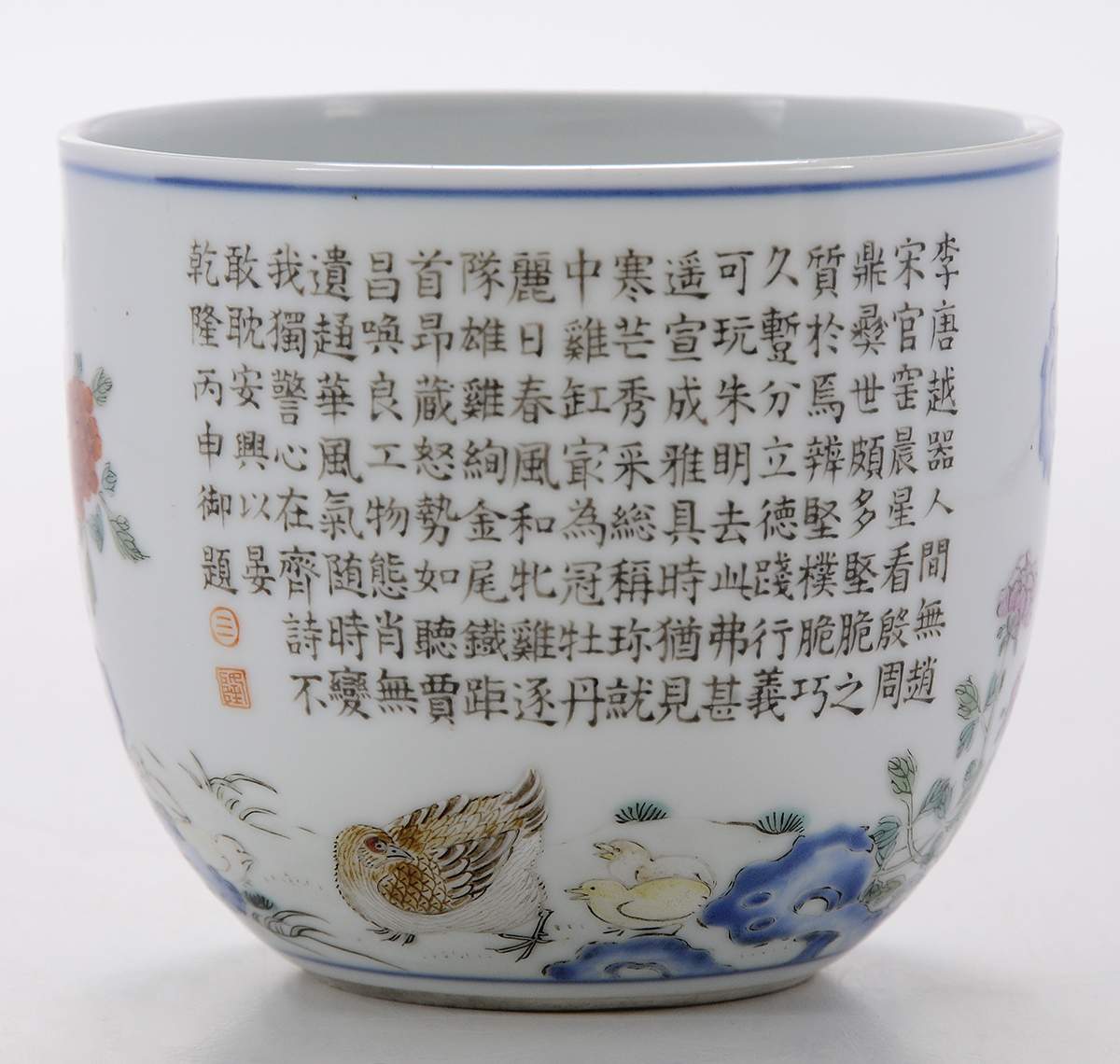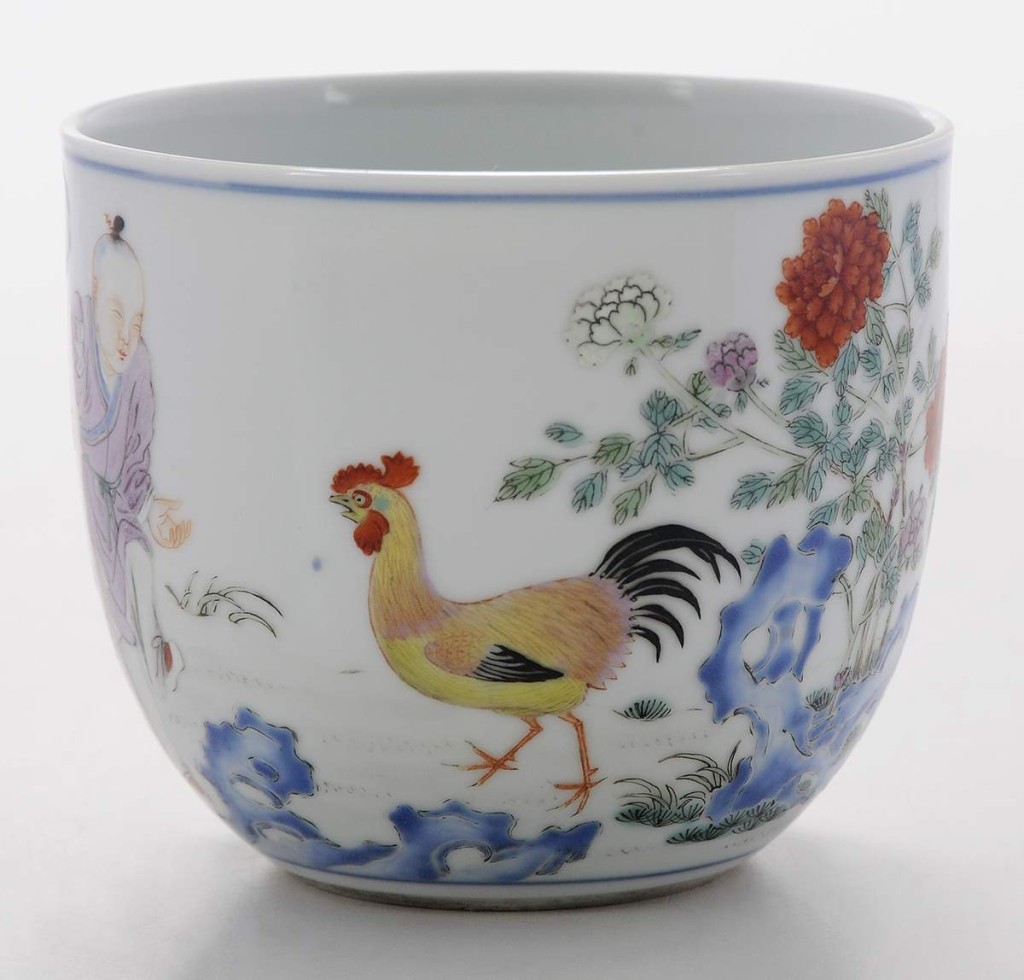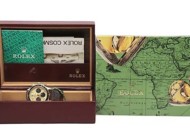ASHEVILLE, N.C. — A rare Chinese porcelain cup sold for $180,000, including premium, at Brunk Auctions on January 28. It was the high lot in a two-day auction, which totaled $2.2 million.
The imperial cup features the sealmark of Qianlong in underglaze blue and fine polychrome enameling of a boy, rooster, hens and peonies. It also features an inscribed poem attributed to the Qianlong emperor, which bears the date of the bingshen year (1776).
 In the poem, the emperor writes about Chinese porcelain in the past, and then transitions into a description of the cup itself, where he describes the setting in detail. He highlights the beauty of peonies blossoming in the spring, the hens chasing each other and the allure of the rooster, who is waiting for the call of Chang Jia, a famous rooster trainer from the Tang dynasty.
In the poem, the emperor writes about Chinese porcelain in the past, and then transitions into a description of the cup itself, where he describes the setting in detail. He highlights the beauty of peonies blossoming in the spring, the hens chasing each other and the allure of the rooster, who is waiting for the call of Chang Jia, a famous rooster trainer from the Tang dynasty.
The Qianlong emperor (1711-1799) was the longest reigning de facto ruler of China, and is widely considered on of the best Chinese rulers, if not the best.
For Brunk Auctions and its staff, there was no better way to usher in the Chinese New Year and the Year of the Rooster than by selling this rooster cup for an impressive amount. Said Andrew Brunk, the firm’s president, “The exceptional sale of this piece of porcelain suggests that Brunk Auctions has extensive reach in the Chinese market.” He added, “We are delighted that this fine cup sold for a price comparable to similar works at New York auction houses.”
Closely related examples have been sold by Sotheby’s and Christie’s and have been exhibited in the Arthur M. Sackler Gallery of the Smithsonian Institution, the British Museum and in the National Palace Museum in Taiwan.
The cup was collected by Doctor Walker Gill Wylie (1848-1923) and descended in his family before being consigned to Brunk Auctions. Wylie established the first nurses training school in America at Bellevue Hospital in New York. While practicing medicine, he also founded Catawba Power Company in South Carolina. Through his close relationship with J.B. Duke, they combined their electric enterprises into what became Duke Power.
The Chinese porcelain cup sold to a private phone bidder, after strong bidding from multiple bidders participating in the room, by absentia, on the phone and on the internet.
Watch for a full report on this sale in an upcoming issue.





